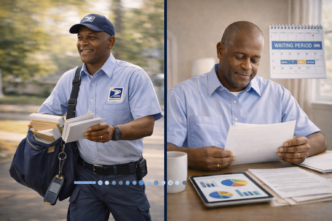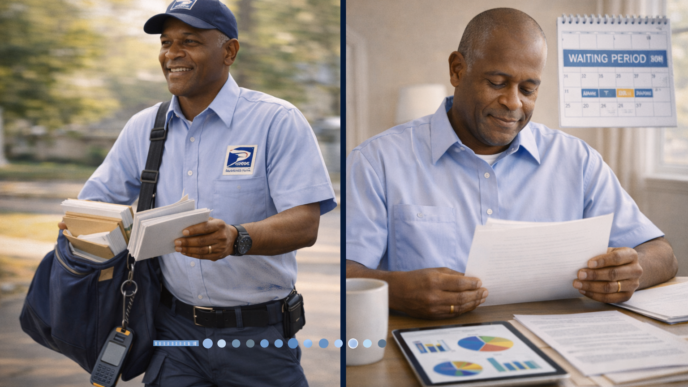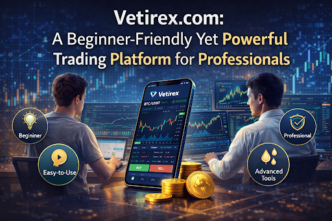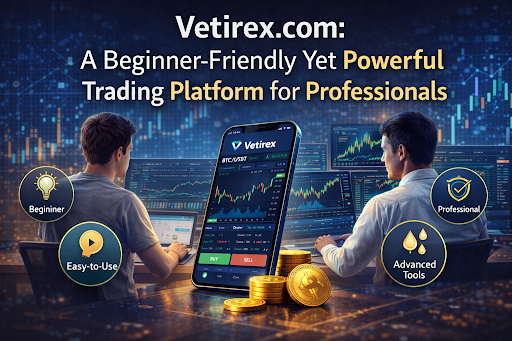Running a small business in 2025 means you’re probably trying to get your name out there online. It’s a crowded space, and bigger companies often have huge marketing budgets. You’re juggling a million things, so figuring out online ads, social media, and search engines can feel like a whole other job. That’s where a digital marketing agency for small business can really make a difference. They’re the experts who can help you cut through the noise and connect with customers without you having to become a marketing guru overnight.
Key Takeaways
- A digital marketing agency for small business helps you compete online, even with limited resources.
- Look for agencies that understand the unique challenges small businesses face, like budget limits and the need for quick results.
- Transparent pricing and clear ways to measure success (ROI) are non-negotiable when choosing a partner.
- The best agencies use advanced tools and data to build strategies tailored to your business, not just generic plans.
- Partnering with an agency means you get a team of specialists focused on your growth, freeing you up to run your business.
Understanding the Small Business Digital Marketing Landscape in 2025
Alright, let’s talk about where things stand for small businesses trying to make a splash online in 2025. It feels like every day there’s a new trend or a new platform to figure out, right? You’re probably juggling a million things, and trying to keep up with the digital world can feel like a full-time job on its own. It’s easy to feel a bit overwhelmed when you see bigger companies with huge marketing budgets seemingly everywhere you look.
The Growing Importance of Online Visibility
Look, if your business isn’t online, it’s practically invisible to a lot of potential customers. Think about how you find things these days – chances are, you’re typing it into Google or scrolling through social media. For small businesses, having a strong online presence isn’t just a nice-to-have anymore; it’s how people discover you and decide to give you a shot.
- Customers are searching: With billions of searches happening daily, if you’re not showing up, someone else is getting that business.
- Social media is key: Over half of consumers learn about new brands through social platforms. You need to be there, and not just posting randomly.
- Mobile is everything: Most online sales and web traffic are happening on phones. If your online presence isn’t mobile-friendly, you’re missing out big time.
Navigating the Competitive Digital Space
It’s definitely a crowded space out there. Big brands have teams of people and massive budgets, which can make it tough for a small business to get noticed. But here’s the thing: you don’t need to outspend them; you need to outsmart them. This means focusing on where your specific customers are and how to reach them effectively. It’s about making every marketing dollar count, which is a challenge many small business owners face.
Key Digital Marketing Channels for Small Businesses
So, where should a small business focus its energy? It really depends on your business, but here are some of the main players:
- Search Engine Optimization (SEO): This is about making sure your website shows up when people search for what you offer on Google and other search engines. It’s a long-term play, but it brings in traffic that’s actively looking for you.
- Paid Advertising: Think Google Ads or social media ads. These can give you a quicker boost and get your message in front of a targeted audience right away. It’s a good way to test what works.
- Social Media Marketing: Beyond just posting, this involves engaging with your audience, building a community, and running targeted ad campaigns on platforms like Facebook, Instagram, or LinkedIn.
- Email Marketing: Don’t sleep on email! It’s often cited as one of the best ways to get a return on your investment. It’s perfect for staying in touch with existing customers and nurturing potential leads.
Defining Your Small Business Growth Objectives
Before you even start looking at agencies, you need to get really clear on what you want your business to achieve. It’s like trying to give directions without knowing the destination – you’ll just end up lost. For your small business to grow in 2025, you need specific targets.
Setting Clear and Measurable Goals
Think about what success actually looks like for you. Is it more sales? More people visiting your store or website? Better brand recognition? You need to put numbers to these ideas. Instead of saying ‘I want more customers,’ try ‘I want to increase online sales by 15% in the next six months.’ This makes it easier to track progress and know if your marketing efforts are actually working.
Here are some examples of goals you might set:
- Increase website traffic by 20% quarter-over-quarter.
- Generate 50 new qualified leads per month through online forms.
- Improve customer retention rate by 10% within a year.
- Boost social media engagement (likes, shares, comments) by 25% in the next three months.
Identifying Your Target Audience Online
Who are you trying to reach? You can’t market to everyone. Figure out who your ideal customer is. What are their interests? Where do they hang out online? What problems do they have that your business can solve? Knowing this helps an agency tailor their campaigns to speak directly to the people most likely to buy from you.
Consider these points about your audience:
- Demographics: Age, location, income, education level.
- Psychographics: Interests, hobbies, values, lifestyle.
- Online Behavior: Which social media platforms do they use? What kind of content do they consume? What search terms do they use?
Aligning Marketing Efforts with Business Outcomes
Your marketing goals should directly support your overall business goals. If your main business objective is to expand into a new geographic area, your marketing should focus on reaching potential customers in that new area. Every marketing activity should have a clear connection to a business result. This way, you’re not just spending money on ads; you’re investing in tangible growth for your company. It’s about making sure the marketing work translates into real business wins.
Evaluating Potential Digital Marketing Agencies
So, you’ve figured out what you want your business to achieve online, and now it’s time to find someone to help you get there. Picking the right digital marketing agency feels like a big decision, and honestly, it is. You don’t want to just hand over your marketing budget without knowing if the agency is a good fit. It’s about finding a partner, not just a vendor.
Assessing Expertise in Small Business Needs
When you’re looking at agencies, think about their history. Have they worked with businesses like yours before? Small businesses often have unique challenges – maybe tighter budgets, or a need to build brand recognition from the ground up. An agency that gets this can be way more helpful than one that only deals with huge corporations. Ask them directly: ‘What’s your experience with small businesses in my industry?’ They should be able to point to specific examples or explain how they adapt their strategies for smaller operations. It’s not just about knowing SEO or social media; it’s about knowing how to apply those skills effectively when resources might be limited.
Reviewing Case Studies and Client Testimonials
This is where you get the real scoop. Case studies are like a portfolio for agencies. They show you actual projects they’ve worked on, the problems they faced, and the results they got. Look for details: what were the goals, what did they do, and what was the outcome? Did they increase website traffic? Generate more leads? Boost sales? Don’t just skim them; try to understand the how and why behind their success. Client testimonials are also gold. Hearing directly from other business owners about their experience – good or bad – gives you a much clearer picture. Are clients happy with the communication? Did the agency deliver on its promises? Did they understand the client’s business? A good agency will be happy to share these.
Understanding Their Approach to Strategy and Execution
How does the agency actually do the work? Do they have a rigid, one-size-fits-all plan, or do they tailor their strategy to your specific business and goals? You want an agency that listens to you, asks smart questions about your business, and then builds a plan based on that information. Ask them about their process. How do they develop a strategy? How do they decide which channels to use? What’s their approach to testing and refining campaigns? It’s also important to understand how they execute. Who will be working on your account? Will you have a dedicated point of contact? Knowing their workflow helps you understand how your projects will be managed and what to expect in terms of communication and progress updates.
Key Services Offered by Digital Marketing Agencies
When you’re looking to team up with a digital marketing agency, you’ll find they usually have a pretty standard set of services they can help you with. It’s not just about throwing ads online; it’s a whole ecosystem designed to get your business noticed and bring in customers. Think of these as the building blocks for your online presence.
Search Engine Optimization for Organic Reach
This is all about making sure your business shows up when people search for what you offer on places like Google. It’s not about paying for a spot, but earning it through smart strategies. Agencies will look at your website, figure out what keywords potential customers are using, and then tweak your site and content to match. They also work on getting other reputable sites to link back to yours, which is like getting a good recommendation. For small businesses, especially those serving a local area, local SEO is a big deal. It helps you appear in searches for people right in your neighborhood.
Paid Advertising for Immediate Impact
While SEO is a long game, paid advertising, often called Pay-Per-Click (PPC), can give you quicker results. This is where you pay to have your ads shown to specific groups of people. Platforms like Google Ads and social media sites let you target users based on their interests, location, and online behavior. An agency can set up, manage, and optimize these campaigns to make sure you’re not wasting money and are reaching the right eyes. It’s a way to get your message out there fast.
Social Media Engagement and Management
Most people are on social media these days, and your customers are probably there too. Agencies can manage your profiles on platforms like Facebook, Instagram, or LinkedIn. This involves creating posts, responding to comments and messages, and building a community around your brand. It’s not just about posting pretty pictures; it’s about having conversations and making connections. They help you figure out what kind of content works best for your audience and when to post it.
Email Marketing for Nurturing Leads
Email marketing is still a really effective way to talk to people who have shown interest in your business. Agencies can help you build an email list and then send out newsletters, special offers, or helpful information. The key here is personalization – sending the right message to the right person at the right time. This helps turn interested prospects into paying customers and keeps existing customers engaged. It’s a direct line to your audience that you own.
Assessing Agency Transparency and ROI Metrics
When you’re looking for an agency to help your small business grow, it’s super important to know exactly what you’re paying for and what results you can expect. Nobody wants to throw money into a black hole, right? So, let’s talk about how to make sure an agency is upfront with you and shows you the actual impact of their work.
Demanding Clear Pricing Structures
First off, pricing. This can get confusing fast, but it doesn’t have to be. You should be able to get a straightforward breakdown of costs. Ask them how they charge: is it a monthly fee, a set price for a project, or by the hour? Whatever it is, they need to explain what’s included. Don’t be shy about asking for details. If they can’t explain their pricing clearly, that’s a bit of a red flag. You want to know that the money you’re spending is going towards actual marketing activities that will help your business.
Here’s a quick look at common pricing models:
- Monthly Retainer: A fixed fee each month for ongoing services. Good for consistent marketing efforts.
- Project-Based: A set price for a specific campaign or task, like building a website or running a short ad campaign.
- Hourly Rate: You pay for the actual time spent on your project. Can be flexible but harder to budget for.
Understanding How Success is Measured
Okay, so you’re paying them, but how do you know if it’s working? This is where Return on Investment (ROI) comes in. An agency should be able to tell you how they’ll track success. They should talk about things like website traffic, how many people actually buy something after seeing an ad (that’s conversion rate), and, of course, the overall return on your marketing spend. They need to connect their work directly to your business goals. If your goal is more sales, they should be showing you how their efforts are leading to more sales.
Key things to ask about measurement:
- What specific numbers (Key Performance Indicators or KPIs) will they track?
- How often will they report on these numbers?
- How do these numbers relate back to the money you’re spending?
Ensuring Data-Driven Reporting
Finally, reporting. This is how you see all that success measurement in action. Good agencies provide regular reports. These shouldn’t just be fancy documents; they should clearly show what’s happening with your marketing campaigns. You want to see the data, understand what it means, and know what the agency plans to do next based on that information. If they’re doing a good job, they’ll be honest about what’s working and what’s not, and they’ll have ideas on how to improve things. Transparency in reporting means you’re not left guessing; you’re part of the process.
Leveraging Agency Technology and Tools
When you partner with a digital marketing agency, you’re not just buying their time and ideas; you’re also gaining access to a whole suite of advanced technology and tools that most small businesses can’t afford on their own. Think of it like getting a professional toolkit instead of trying to build something with just a hammer and nails. These platforms are often expensive, but agencies invest in them because they make campaigns work better and faster.
Access to Advanced Analytics Platforms
Agencies use sophisticated analytics tools to track everything. This means they can show you exactly where your website traffic is coming from, what people are doing once they get there, and which marketing efforts are actually bringing in customers. It’s not just about looking at numbers; it’s about understanding what those numbers mean for your business. They can pinpoint trends and spot opportunities you might miss. This kind of detailed insight helps make sure your marketing money is spent wisely.
Utilizing Marketing Automation Solutions
Marketing automation is a big one. Imagine sending out personalized emails to customers based on their past purchases or website activity, all without you having to lift a finger. Agencies use these systems to nurture leads, send follow-up messages, and even manage social media posting schedules. This keeps your brand in front of potential customers consistently, which is great for building relationships and driving sales. It saves a ton of time and makes your marketing feel more personal to each customer.
Integrating CRM Capabilities
Many agencies also work with Customer Relationship Management (CRM) systems. This is where all your customer information lives. By connecting marketing efforts with your CRM, agencies can help you see the full journey of a customer, from their first click on an ad to becoming a loyal buyer. This integration means marketing and sales teams are on the same page, and you get a clearer picture of your return on investment. It helps make sure no potential customer falls through the cracks. Finding the right agency can really help you accelerate your growth.
Building a Collaborative Partnership
So, you’ve picked an agency. That’s a big step! But honestly, the real work, the stuff that actually makes your business grow, starts now. It’s not just about handing over your marketing and walking away. Think of it more like getting a new team member, or maybe a whole new department. You need to work together.
Establishing Communication Protocols
This is super important. How often will you talk? Who will you talk to? You don’t want to be left in the dark, wondering what’s going on with your ad spend or your social media posts. A good agency will lay this out for you right from the start. They should tell you if you’ll have one main person to contact, or if you’ll be talking to different specialists for different things. They should also tell you how often you’ll get updates – maybe weekly check-ins, or monthly reports, or both. It’s about making sure everyone’s on the same page and that you know what’s happening with your marketing efforts.
- Regular scheduled calls: Weekly or bi-weekly meetings to discuss progress and upcoming plans.
- Email updates: Daily or weekly summaries of key activities and performance.
- Dedicated point of contact: A specific person you can reach out to with questions.
- Reporting frequency: How often you’ll receive detailed performance reports.
Understanding the Onboarding Process
When you first start with an agency, there’s a whole process to get them up to speed on your business. They need to know who you are, what you sell, who your customers are, and what you’re trying to achieve. This isn’t just a quick chat; it’s usually a deep dive. They’ll ask a lot of questions, look at your current marketing, and figure out the best way to move forward. Getting this initial phase right sets the stage for everything that follows. If they don’t really understand your business, their marketing plans might miss the mark.
Fostering Long-Term Growth Strategies
Your business isn’t going to grow overnight, and neither is your marketing. A good agency doesn’t just focus on quick wins; they think about the long game. They’ll work with you to create strategies that not only meet your current goals but also set you up for success down the road. This means they’re always looking at what’s changing in the market, what new tools are available, and how your business itself is evolving. They should be partners in your growth, not just service providers. It’s about building something that lasts and keeps bringing in customers year after year.
Wrapping It Up
So, finding the right digital marketing agency for your small business in 2025 isn’t just about picking a name from a list. It’s about finding a partner who truly gets what it’s like to run a small operation. You need someone who understands tight budgets but can still deliver big results, someone who speaks your language and not just marketing jargon. Remember to look for clear pricing, a team that knows the unique struggles of small businesses, and proof that they can actually help companies like yours succeed. Don’t settle for a cookie-cutter approach; find an agency that feels like an extension of your own team, ready to help you grow and stand out in the crowded online space. The right fit can make all the difference.
Frequently Asked Questions
Why is online visibility so important for small businesses in 2025?
In 2025, most customers search online for products and services. If your business isn’t easily found on the internet, you’re missing out on potential customers who will likely go to your competitors instead. Being visible online helps you connect with people looking for what you offer.
What are the main digital marketing channels small businesses should focus on?
Key channels include Search Engine Optimization (SEO) to rank higher on Google, paid ads for quick results, social media marketing to connect with people, and email marketing to keep customers interested. A mobile-first approach is also crucial since many people shop and browse on their phones.
How can I tell if a digital marketing agency truly understands small business needs?
A good agency will know that small businesses often have smaller budgets but need big results. They should offer strategies that are cost-effective, focus on quick wins as well as long-term growth, and provide hands-on support. Look for agencies that have worked with similar small businesses before and can show proof.
What does ‘ROI’ mean, and why is it important when choosing an agency?
ROI stands for Return on Investment. It means how much money you get back for every dollar you spend on marketing. It’s vital because you want to make sure your marketing budget is actually making your business more money. Agencies should be able to clearly explain how they track and measure this for you.
What kind of technology should a digital marketing agency use?
The best agencies use advanced tools. This includes platforms for analyzing website traffic and customer behavior (analytics), software to automate marketing tasks, and systems to manage customer relationships (CRM). Having access to these tools helps them create more effective strategies and report on results accurately.
What should I expect during the first month of working with a new agency?
Typically, the first month is about getting to know each other and setting things up. The agency will likely review your current marketing, look at what your competitors are doing, and work with you to create a clear plan and goals. They’ll also start setting up the initial campaigns.














